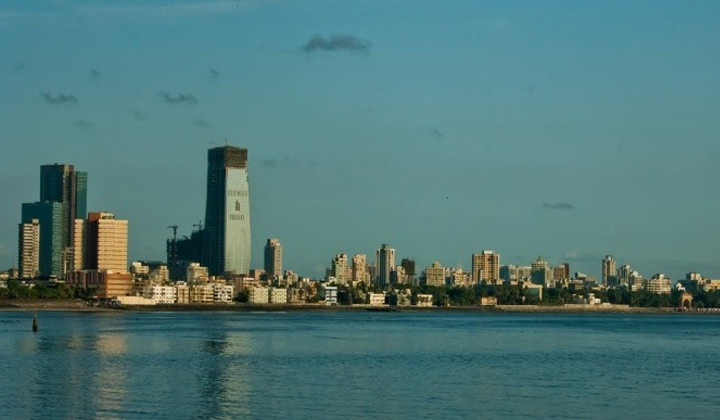Trending Now
- Action should be taken against the cops who protect the Ganja accused in TN : PMK leader Anbumani Ramdoss
- Votes that go to Congress or INDI alliance is a waste : PM Modi
- Court grants one-day custody to police to investigate Youtuber Savukku Shankar.
- We actually got our independence only in 2014. The independence to change this country as it should be : Actor , politician, Kangana Ranaut
Real Estate
Will realty sector slowdown continue in 2016?
![]() December 25, 2015
December 25, 2015
Teena Jain Kaushal
With huge inventory piling up across the country, the road to recovery looks long and winding for the real estate sector.
According to experts, it will take another five years to sell the 7 lakh units, but lack of buyers’ interest will make it more and more difficult for developers to complete existing projects.
Even the festive season and the recent round of rate cuts by the Reserve Bank of India (RBI) have failed to bring cheer to the real estate market. Lack of a regulator and delayed reforms have also prompted people to stay away from real estate.
Property prices have remained stagnated. According to real estate consultancy firm JLL, in the last four quarters, prices in Mumbai and Chennai increased by 3.7 per cent and 1.5 per cent respectively while in Delhi-NCR, prices remained flat-and the trend is likely to continue.
Though the situation is expected to improve this New Year, experts say it won’t be as good as 2010-2012, and will take a few more years for the sector to revive.
Here is a lowdown on how the real estate sector is expected to perform in 2016.
PRICE OUTLOOK
Those who are looking at quick profits should not invest in properties because realty prices are not expected to rise sharply.
Says Anuj Puri, chairman and country head, JLL India, “Though many buyers have been waiting for real estate prices to correct, it is unlikely that any large-scale ‘shock disruption’ is imminent.”
Expectations were high that after the new government comes to power, a new lease of life would be infused into the sector but nothing has happened so far. Sanjay Dutt, managing director, Cushman and Wakefield India agrees, “While we expect a status quo during 2016, the impact of these developments will gradually set in towards the end of 2017 or early 2018.” However, unlike the residential market, commercial projects are showing signs of revival.
NEW LAUNCHES
Now that investors are preferring financial assets over physical assets, developers have cut down on new projects. Moreover, end users have not been buying properties feeling let down by the developers.
Stretched deadlines for completion of projects has shooed buyers away from the market. The trend is expected to continue in 2016. According to a recent Knight Frank report, new project launches in NCR stood at 11,360 units in the first half of 2015 registering a massive 68-per cent drop from the corresponding period in 2014.
However, several steps have been taken to make real estate more affordable. According to experts, many new housing projects have been launched at lower rates compared to similar projects launched in the same location. The Knight Frank report says residential projects under the Haryana government’s affordable Housing Policy 2013 contributed significantly to the new launches in NCR between January and June 2015. Approximately, 43 per cent of the total new launches fall under the scheme.
UNSOLD INVENTORY
Unsold inventory is a key indicator for the real estate sector. Rising levels of inventory indicate the lack of demand in the market.
Says Dhruv Agarwala, chief executive officer, PropTiger and Makaan.com, “Unsold inventory had reached very high levels in the beginning of 2015. It has come down slightly in the past two quarters due to a slowdown in new launches. We expect it to come down further as new launches will continue to go down and developers will focus on liquidating the existing inventory.”
Lack of buyers’ interest has also impacted property prices, which either remained stagnant or declined across all major cities. According to a research report from PropTiger, in the first quarter of 2015-16, property sales fell by 18 per cent across Ahmedabad, Bangalore, Chennai, Gurgaon, Hyderabad, Kolkata, Mumbai, Noida and Pune.
POSITIVE SIGNALS
Regulator: The real estate market lacks regulation, transparency and systematic process. A regulator for the sector will help buyers and investors to rebuild their faith on builders and developers.
Online buying: Developers have realised the potential of online medium in terms of reaching out to people.
Says Agarwala: “Although these are early days in India for home transactions on the digital platform, I believe it will grow. Portals will come out with newer features and solutions that would provide easy access to every potential customer directly on his or her smartphone.”
Recently, Tata Value Homes tied up with mobile payments network MobiKwik to allow payments for home bookings. Tata Value Homes has already sold 2,000 homes online through digital platforms, including Facebook, Snapdeal, and housing.com.
Interest rate cut: Experts say the RBI may cut interest rates further and this could trigger demand in tier-II and tier-III cities. The RBI has cut the repo rate by 125 basis points (bps). Banks have, however, been slow in passing on the benefit of the rate cut to customers reducing home loan rates by only 30 to 35 basis points. Therefore, it may not be a good idea to invest in real estate in 2016. For end users, however, it is certainly the right time. But, before you take the plunge, don’t forget to bargain for your dream home.
In association with Mail Today
























